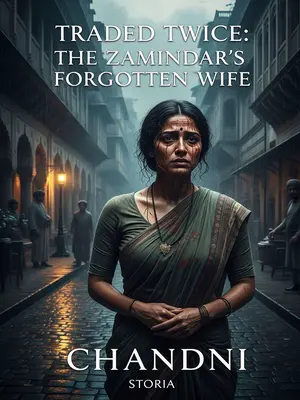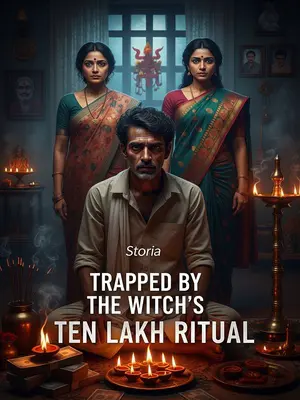Chapter 2: Umeed, Uljhan Aur Unka Ghar
After the demolition news broke, I was genuinely thrilled for Neha.
I pictured her bursting through her tiny gate, dupatta fluttering, her face glowing as she clutched the government letter, cheeks pink with hope. The whole mohalla would be buzzing—neighbours peeking out to congratulate, someone handing out barfi, the local panwala offering free chai. My excitement was almost bachpana—I just wanted her to know I was with her, poora dil se.
I imagined her running to me, face beaming:
“Ishaan, apna ghar milne wala hai!”
In my mind, her voice rose above the auto horns and distant azaan. It was like a scene from an old Hindi movie, her shy laughter and playful nudge to my shoulder. I could see her blushing, her khushi infectious.
I’d be thrilled too. How would I tease her?
“In future, if we fight and tu bhaag gayi, I’ll know exactly where to find you!”
That’s always been our style—half mazaak, half sach. She’d roll her eyes, maybe give my arm a light thappad, her payal chiming. Love here is in these choti-choti baatein, hai na?
She’d glare and grumble:
“Tu toh bindaas hai, haan? Dekh loongi main tujhe!”
I could picture her scrunching her nose, pretending to be angry, lips twitching in a half-smile. The way she’d flick her hair and turn away, only to peek at me from the corner of her eye—classic Neha.
Thinking of her, I called. The dial tone kept ringing—no answer.
Each beep made my heart sink. The city’s background—vendors shouting, a Bollywood song on radio—only made her silence feel more heavy.
I messaged—no reply.
I typed, deleted, retyped, overthinking every word. Should I be casual, or show concern? I finally sent, "Call me jab free ho." But the blue ticks just stared back.
I called her office. A colleague said Neha had taken two days chhutti.
That was odd—she never missed work, not even with bukhar last year. A weird worry crept in. The walls of my own office, with the cold AC and the smell of stale rajma chawal, suddenly felt suffocating.
Suddenly I panicked. Did she faint from happiness?
She’s always been soft-hearted, easily overwhelmed. I pictured her maa fussing, giving glucose water and muttering, "Beta, sab theek ho jayega." Maybe I was overreacting, but worry pushed me to her gali, almost tripping over a street dog in my rush.
I reached her house.
The sights were familiar—the old cycle against the wall, faded rangoli at the doorstep, kids playing cricket with a broken bat. I paused, catching my breath, mind spinning with possibilities.
Before I could knock, I heard voices inside:
“Beta, samajhdaari se kaam lena ab. Pehle socha Ishaan theek hai, par ab hamari aukaat alag hai. Hamara ghar itna bada hai, teen flat toh pakka milenge. Samjhi kya demolition hota hai? Mumbai waale sab isi tarah ameer hue. Sab redevelopment ka khel hai.”
Neha’s maa’s voice, that familiar up-down lilt, now sounded sharper, more calculating. She’d always been gentle, but now her words had a new weight. The way she said 'Beta, samajhdaari se kaam lena ab' was straight out of a Zee TV serial, like her priorities had flipped overnight.
It made me uncomfortable. Now that her family was rich, did she look down on me?
A strange pang hit—like our gap had widened, old warmth replaced by cold calculation. It’s a typical Indian fear: respect and love depending on status. The way she spoke about flats—as if every square foot could buy happiness—made me uneasy. I pressed myself closer to the wall, hoping not to make a sound.
But it got worse:
“Char flat mil rahe hain toh options hi options hain. Agar ameer ghar mein shaadi ho bhi jaaye, ab darne ki zaroorat nahi.”
“Tu Kabir ke parivaar ko toh jaanti hi hai na? Kitne saal se yahan hain. Dadaji, dadi, nani, nana sabke ghar hai uske paas. Chacha ji, mausi, mama, bua ji—poore khandaan ko bees flat milenge. Uske saath gayi toh zindagi set hai.”
She listed relatives like a katha at a shaadi, each flat a new level. For a second, I imagined the entire khandaan lining up for allocation letters, grinning at their good fortune. It felt like love itself was being measured in real estate.
Kabir, that big, dark, pimple-faced guy who never bathes—compared to me?
It stung. I remembered Kabir’s loud laughter echoing through the gali, his stained shirt and perpetually dusty feet. The thought of him as a 'property king' was both funny and infuriating.
“Bas karo Maa, Kabir toh class 8 bhi mushkil se pass hua hai. Kuch bhi bol nahi paata. Main uske saath rahoon?”
I heard Neha’s irritation. She’s always been proud of her education. The way she said "class 8"—like it was an unbreakable line—reminded me how much her own struggles mattered to her.
“Padhai se kya hota hai? Flat milta hai kya? Ishaan ko toh loan lena padega ghar ke liye, tu hi madad karegi uski.”
It felt like a punch. The old belief that degrees meant nothing next to sudden wealth echoed in that small room. I could almost picture her maa’s raised eyebrows, her tone weary from years of waiting for a break.
“Kabir bhi kuch khaas nahi. Bhains jaisa dikhta hai. Dekh ke ulti aa jaati hai.”
Her blunt honesty was almost comforting. At least some things hadn’t changed—her standards, her directness. But now it sounded hollow, like it was all just negotiation.
“Arre pagal, aadmi toh sab ek jaise hote hain andhera hone ke baad. Paise se sab kuch ho jaata hai, suit pehna do, hero ban jayega.”
That last line threw me. It was the kind of thing you hear over chai, a bitter joke passed from mother to daughter. Hearing it from her own mouth about her own beti made me shiver.
My chest turned cold.
The air felt thick, as if my own values were being suffocated by the mercenary logic in that tiny room. I felt like a stranger in a story I thought I’d written.
I’d always thought Neha’s maa was simple, warm-hearted.
The kind who’d serve me extra kheer, smile shyly and ask, “Beta, aur lo na.” Now I wondered if I’d misjudged her. Or maybe, life’s circumstances really do change people overnight.
I never thought her mind could be so full of calculations.
It was a jhatka. All those years of struggling together now seemed small in the face of this new maths. I felt the ground shift beneath me.
But at least, I thought, Neha isn’t like that.
I comforted myself with memories of Neha’s laughter, her stubborn honesty, the way she always split the bill even when she couldn’t afford it. My hope flickered, refusing to go out.
But after waiting, I didn’t hear Neha’s response. She just murmured, almost inaudible:
“Accha Maa, sochti hoon.”
Her soft, uncertain words sent a chill down my spine. That’s what you say when you’re already considering the alternatives. For the first time, my faith in her wavered.
I pressed myself against the peeling wall, heart pounding, realising I might be the outsider now.













